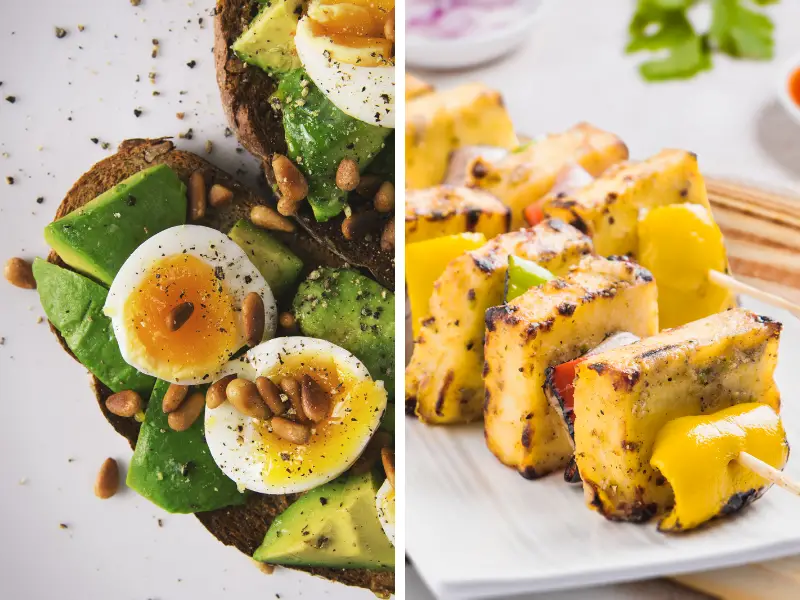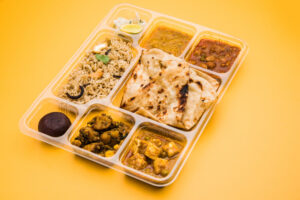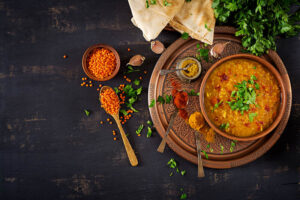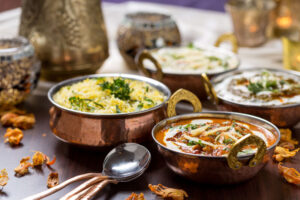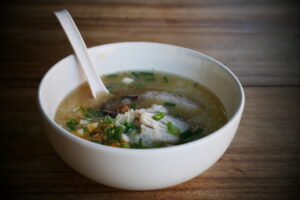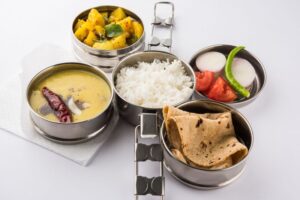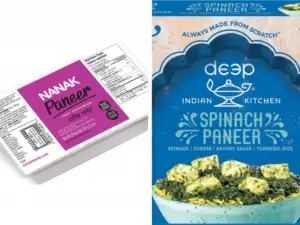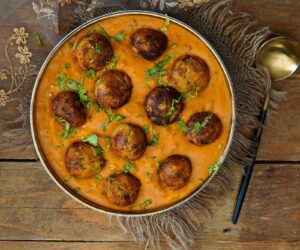Both paneer and egg are nourishing foods that have a variety of health advantages, are delicious and can be prepared in a variety of ways, are healthy and make a nice pre-workout snack, and are referred to be superfoods. The main difference is that vegetarians eat paneer, while non-vegetarians eat eggs. Therefore the dispute over which is healthier or more nutritionally better will likely never stop.
The article egg vs paneer compares and contrasts the differences, similarities, and other aspects of these two nutritious foods! So continue reading to find out which is the healthier and better weight-loss option: eggs or paneer.
Egg vs Paneer Nutrition
Egg
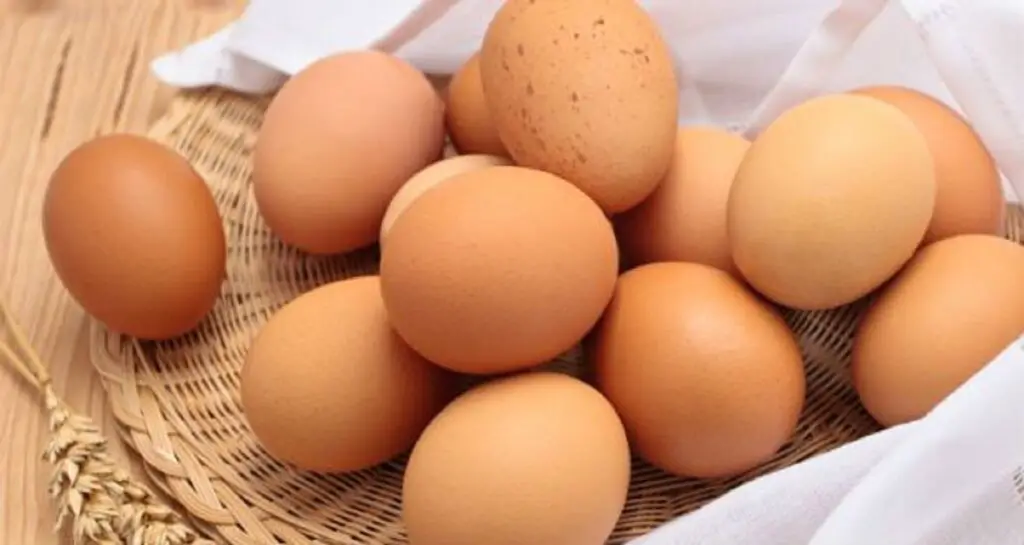
One egg contains only 75 calories but 7 grams of high-quality protein, 5 grams of fat, 1.6 grams of saturated fat, iron, vitamins, minerals, and carotenoids, as well as iron, vitamins, minerals, and carotenoids.
Disease-fighting elements like lutein and zeaxanthin are abundant in eggs. These carotenoids may help to lower the chances of age-related macular degeneration, which is the major cause of blindness among the elderly. In addition, the choline content of eggs may also help with brain development and memory.
Paneer

Paneer has 265 calories per 100 grams, 20.8 grams of fat, and 1.2 grams of total carbohydrate. In addition, there are 18.3 grams of protein and 208 milligrams of calcium in this food.
People who do weights at the gym need to eat a lot of protein. As paneer is high in protein, it’s a terrific source of protein, and the best thing is that it keeps hunger away.
Paneer Vs Egg Protein Content
Paneer and eggs are two common sources of protein that most of us depend on. Chicken, in addition to eggs and paneer, is a good source of protein. Check out this article, paneer vs chicken, for more info!
Paneer
Paneer is a protein powerhouse. It’s not only delicious, but it’s also quite nutritious. Paneer prepared from cow’s milk includes 18.3 grams of protein, 1.2 grams of carbohydrates, 20.8 grams of fat, and 2.6 grams of minerals per 100 grams. It also has a good quantity of calcium and selenium in it.
Paneer is one of the nutrient-dense foods that can provide a variety of health benefits. Paneer is a delectable cheese that may be prepared in a variety of ways. It’s a great pre-workout snack for individuals who go to the gym or run. Paneer has 19 g of protein per 100g, meeting most of the protein intake requirement. However, you must be aware of the amount of protein required based on your weight and lifestyle.
Eggs
You should be aware of paneer nutrition in order to include the appropriate amount of protein in the diet.
The average egg has 6–7 grams of protein in it.
The amount of protein in an egg, however, is dependent on its size. Here’s how much protein is in various egg sizes:
- 4.9 grams of protein in a small egg (38 grams).
- 5.7 grams of protein in a medium egg (44 grams).
- 6.5 grams of protein in a large egg (50 grams).
- 7.3 grams of protein in an extra-large egg (56 grams).
- 8.2 grams of protein in a jumbo egg (63 grams).
To put these figures in context, the average sedentary male requires 56 grams of protein per day, while the average sedentary woman needs 46 grams.
Egg vs Paneer – So, Which One Has More Protein?

Paneer and eggs are two of the most popular protein sources for fitness and health fanatics. When it comes to comparing protein content, the two candidates are measured differently. Paneer’s nutrients are assessed per gram, whereas an egg’s nutrients are measured per unit.
One whole egg has roughly 7 grams of protein, while 100 grams of paneer has around 14 grams. To put it in perspective, one large egg weighs roughly 50 grams. Thus, 100 grams of egg would contain 14 grams of protein. Surprisingly, paneer and eggs both have nearly the same amount of protein in them.
Egg vs Paneer: Taste And Benefits
Paneer Taste and Benefits
Paneer’s origins may be traced back to Middle Eastern countries, mainly Iran; its cooking manner and flavor have evolved over time.
Paneer has a creamy, fresh, and mild flavor. Other fresh cheeses, such as Italian Ricotta and cottage cheese, have a similar flavor. Some people think the cheese is tasteless because it contains no salt.
In his blog post on “how to create and use Paneer,” British celebrity chef Jamie Oliver writes that the cheese has a thick, crumbly texture that pairs nicely with a spicy, rich ingredient.
He also notes that utilizing paneer is a great way to avoid eating meat.
When comparing paneer to different varieties of cheese such as unsalted feta, Queso Fresco, panela, Halloumi, or fresh Mozzarella, the similarities are striking.
Paneer is an all-rounder when it comes to ways it can be eaten and tastes good almost in all forms. So let’s find out the amazing health benefits it has!#Nutritious #Beneficial #HealthFacts #Paneer #BOSSHomeAppliance pic.twitter.com/EWf2ejV89e
— BOSS Home Appliances (@BOSS_Appliances) April 2, 2018
Below are the benefits of having paneer:
- Lowers The Chances Of Breast Cancer
Cancer is common, and breast cancer is on the rise among women at an alarming pace. Paneer is high in calcium and vitamin D, both of which help to reduce the risk of breast cancer.
2. Strengthens the teeth and bones
Paneer is high in calcium, which is known to help build teeth and bones. Calcium also aids in the smooth operation of the neurological system and the maintenance of healthy cardiac muscles.
3. Assists in the Loss of Weight
All of you fitness freaks will be happy to hear this! Paneer aids weight loss because it provides protein that makes you feel full for a long period, preventing you from overeating. Furthermore, it contains a fatty acid that aids in the burning of fat.
4. Assists in the maintenance of a healthy digestive system
It has phosphorus and magnesium in it. Phosphorus aids in the digestion and elimination of waste. Magnesium also prevents constipation because it has a laxative effect.
5. Beneficial for Diabetic Patients
Diabetics! Is it possible to eat less or no sweets? But don’t be concerned. Because paneer is waiting for you! The magnesium in paneer aids in blood sugar regulation and maintenance, as well as improving heart health and immune system strength.
In addition, the protein in paneer keeps blood sugar levels from fluctuating dramatically.
6. Paneer is good for the immune system because it contains nutrients that aid in the development of a healthy immune system. Our immune system defends us against infection-causing bacteria. It also helps to strengthen muscles and relieve muscle cramps.
7. Paneer for cognitive development: It contains omega-3, which is beneficial to children’s cerebral development. It increases memory and concentration in children.
Egg Taste and Benefits

Eggs’ taste differs on how it’s been cooked. The taste of a raw egg is bland. The yolk and the egg white are the two primary components of the egg. Yolk has a high-fat content and a buttery or creamy mouthfeel, with subtle umami or fishy flavor that some individuals detect. The egg white is the proteinaceous component of the egg, and it has a little tinge of saltiness to it, but it is otherwise bland. A raw egg has a slimy and sticky texture. However, the whisked raw egg can have a silky, creamy, and buttery texture.
Eggs, when cooked, have a flavor that is not excessive, but it is subtle. If you can’t stand the taste of eggs, either they’re not cooked properly, or you’ve developed a taste for overly seasoned foods and have lost the ability to appreciate nuanced mild flavors.
Below are the benefits of eating eggs:
- Eggs are usually regarded as a good source of high-quality protein. Proteins are the basic building blocks of life, necessary for muscle and tissue strength and repair — one egg contains around 6.3 grams of protein.
The protein in eggs has a significant benefit since it contains all 9 essential amino acids in sufficient levels to support muscle growth, recuperation, and maintenance.
2. Eggs help to raise “good” cholesterol levels.
3. Egg yolks are one of only a few foods that contain vitamin D naturally. With nearly a quarter of all Australian people suffering from mild to moderate vitamin D insufficiency, the case for eggs becomes even stronger.
Two eggs contain 82 percent of your necessary daily vitamin D intake, making them a crucial source of this vitamin.
4. Eggs are one of the finest food options for weight loss because they are relatively low in calories and high in quality protein. Eggs’ high satiety levels contribute to increased feelings of pleasure, reduced hunger, and a lesser urge to eat later in the day, so you’ll be less tempted to grab a mid-afternoon snack.
According to research, eating eggs can help you feel fuller for longer by:
- Increasing the levels of a hormone that makes you feel full after you eat
- Keeping your energy levels up
- Increased metabolic activity
- Increasing the time it takes for food to leave the stomach
Eggs are abundant in high-quality protein, making them an excellent addition to a variety of dietary plans that can help people lose weight. Eating eggs can also assist in minimizing glucose fluctuations, which can have long-term benefits in terms of managing eating patterns.
5. Vitamin A, vitamin E, and selenium, all of which operate as vital antioxidants in supporting eye health, retina function, and helping to prevent degenerative vision as you age, are all found in eggs.
Lutein and zeaxanthin, antioxidants found in eggs, serve a preventive effect in reducing the risk of certain eye illnesses such as cataracts and age-related macular degeneration.
6. Eggs are also better absorbed by the body than other plant sources of antioxidants, according to studies.
7. Eggs are a simple way for older individuals to enhance their nutrient intake, which can help to minimize the risk of a variety of deficits and illnesses.
They also include a considerable quantity of leucine, an amino acid vital for long-term muscular support, as well as other crucial nutrients like vitamin D and Omega-3 fatty acids, as well as a lesser-known ingredient called choline, which is essential for brain function.
Paneer Vs Egg Fat Content
Paneer
Paneer contains roughly 20% fat and is a good source of saturated fats. It also contains monounsaturated fats, which are good for you (MUFA). MUFA has been linked to a reduction in LDL (bad cholesterol) levels in the blood. The major MUFA in paneer, oleic acid, has been linked to reducing blood pressure. Paneer also has a good level of alpha-linoleic acid, an omega-3 polyunsaturated fat that has been linked to a moderate reduction in the risk of heart disease. Portion control is crucial due to the large level of saturated fats.
Egg
The fat content of eggs is approximately 9%. The yolk contains almost all of an egg’s fat, while the albumen contains less than 0.5 percent.
Monounsaturated fatty acids make up the majority of an egg’s overall fatty acid content (approximately 38 percent). Another 16% is polyunsaturated, whereas only 28% is saturated.
An average medium-sized egg contains 177mg cholesterol, which is around 12% less than eggs from two decades earlier. To see how different sizes of eggs have variable fat content, look at the table below.
| Nutrition information | Per small egg (48 grams) | Per medium size egg (58 grams) | Per large egg (68 grams) | Per very large egg (78 grams) | Per 100 grams |
| Fat (g) | 3.7 | 4.6 | 5.4 | 6.2 | 9.0 |
| Saturates (g) | 1.0 | 1.3 | 1.5 | 1.7 | 2.5 |
| Monounsaturates (g) | 1.4 | 1.7 | 2.0 | 2.4 | 3.4 |
| Polyunsaturates (g) | 0.6 | 0.7 | 0.9 | 1.0 | 1.4 |
So, Which One Is Healthier? Egg Or Paneer?
Both paneer and eggs have the same nutritional content: high vitamin and mineral content, low fat, carbohydrate, calorie content, and high protein content. In addition, both meals have several health benefits in common, such as assisting muscle building and fat loss and many distinct benefits, such as paneer improving bone strength and eggs lowering the risk of stroke. As a result, there is no obvious winner regarding which is the healthier option.
Egg Vs Paneer For Weight Loss
The urge to be slim and healthy exists in both men and women. Obesity is not good for your health. The majority of people consume one egg in order to lose weight. Paneer, like egg, is also nutrient-dense. Vegetarians will appreciate in order to lose weight, paneer is a delicious cheese. Paneer is a protein-rich dairy product.
Carnivores have the option of eating both eggs and paneer for protein. Paneer and eggs are high in protein and can help you lose weight more quickly. In addition, egg and paneer are simple to prepare. These can be used in a number of dishes, such as paneer and eggs.
Both eggs and paneer are high in nutrients. As a result, these two foods are the healthiest and most beneficial to a child’s development.
Minerals and vitamins are abundant in the egg. But, on the other hand, paneer is high in calcium, protein, and healthy fats.
Eggs and paneer are good options for individuals looking to shed weight or gain muscle. Healthy fats and proteins in our bodies for body wellness cannot be overstated. They are beneficial to the development of bone, muscle, and bodily organs. Healthy minerals including calcium, B12, and iron can be found in both eggs and paneer.
Eating one inexpensive egg every day can be beneficial to your health. Eggs can be prepared in a variety of ways. Eggs can be consumed in a variety of ways, including scrambled, curried, poached, and more. Some people eat the yolk of the egg, while others consume the white. The most vital nutrients are found in the yellow region of the egg.
Calcium, vitamin B12, selenium, vitamin D, and riboflavin are all found in paneer. Salads and entire dinners can be made with paneer. Paneer and eggs have nearly identical nutritional profiles. Paneer should be included in the diet of vegetarians.
Can I Eat Egg With Paneer Together?
Paneer and eggs, according to the experts, are safe to eat together. Protein, calcium, vitamin B12, and iron are all abundant in both. Paneer is the main source of protein for vegetarians, while non-vegetarians can eat both. Both are effective options for weight loss because they are high in protein. They suppress your appetite and aids in the burning of belly fat. Both are slowly processed by the body, making you feel fuller for longer.”
As a result, it’s up to your body’s needs and preferences. Overall, you can eat egg one time and paneer the next, or you can eat both at the same time but in moderation, because too much of anything can be harmful.
When To Eat Eggs For Weight Gain?
Cooked eggs are a great post-workout snack if you want to gain weight. Eat 8–10 with 1 yolk after your workout if you just consume egg whites. Three each day will ensure that you get enough Vitamin B and carbohydrates.
Can Paneer Be Eaten Daily?
Yes. It is beneficial to consume paneer on a daily basis, as long as the amount consumed is moderate. People who do a lot of weight lifting in the gym, on the other hand, require a lot of energy and the correct quantity of protein.
So, if you live an active lifestyle, an average of 100g of paneer every day won’t hurt.
However, it is preferable to consume less than 100g of paneer every day, as this amount of paneer corresponds to a high-calorie intake. Also, paneer made from low-fat milk is a good choice. You can also make a paneer block at home, store it and use it whenever you want, or have store-bought paneer.
You can make a variety of paneer dishes, and most of the dishes do require some marination beforehand. Here’s how to marinate paneer. And if you buy frozen paneer from stores, learn how to soften frozen paneer properly.
